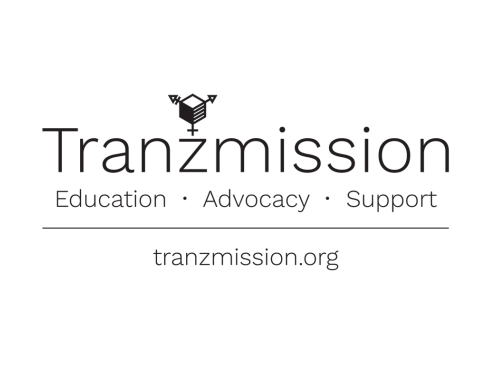
The Latest:
The petition has received over 1000 signatures collected online and in person, and has been endorsed by 30 organizations (and counting)!
Update: May 15 City Council Meeting
Jaime Matthews, Assistant to the City Manager, and Scott Barnwell, Business and Public Technology Manager in the IT department, presented the staff report promised after Patrick Conant presented the Petition for Police Accountability Through Data Transparency at the April 24 Asheville City Council meeting.
The report was short on details and City Council members were not pleased. While a few of the easier requests are being fulfilled, five key datasets were not addressed, with staff citing a need for further discussion, proposing a new process of data engagement with the community.
The Council has asked that staff report back at the June meeting with much more concrete results. As Mayor Manheimer put it, they want to see “exactly what’s being requested, and whether we do collect that data now, or not. Whether we do collect it in a format that is easy to release or not. And then, if yes, yes, we collect it, and we have it, then what is the barrier to producing that information to the public? What is the other reason that we can’t do that? And if there is a barrier, then what is the alternative?”
The mayor invited Code for Asheville’s Patrick Conant, who has led the petition effort, to comment immediately after the staff presentation. Patrick made three key points. First, he called out the underlying issue: that the Asheville Police Department does not want to move forward on data transparency. Second, he pointed out that the proposed process is flawed in that it gives staff the power to unilaterally block the release of any dataset and asked that the City work with the community to create a more balanced process, with City Council having final say. Third, he asked that City Council update the open data policy to clearly state that any data that is public record can be released as open data on request by the community through a straightforward process.
Check out the video of the presentation, discussion and response here.
Please continue to sign and share the petition, then please send an email to City Council in support! MORE INFO HERE
On the night of August 24–25, 2017, a local resident was brutally beaten by an Asheville Police Officer. Although the incident occurred in August, neither the public nor City Council learned of it until February 28, 2018, when a body camera video of the assault was provided to the Asheville Citizen-Times. In the days since the initial release, the incident has received national attention and caused significant outrage in the Asheville community. View all related videos released by the APD here.
Code for Asheville and other community groups have started a petition seeking reforms to increase the transparency and accountability of our police department. We hope to play a constructive role in addressing the structural issues that underlie the incident by creating a formal request for the timely release of critical datasets related to public safety. The release of these datasets will provide additional accountability within the Police Department, and the commitment to transparency by our City will start the long process of rebuilding community trust in our Police Department.
Code for Asheville’s full request may be found here
If you’d like to get involved with Code for Asheville, please COME TO OUR MEETINGS and JOIN OUR EMAIL LIST.
UPDATES:
CFA’s full request was presented to Asheville City Council on Tuesday, April 24th.
The presentation to Council went well. The interim City Manager has made a commitment to get any necessary reports done by Council’s next meeting on May 15. This is very important, as it provides Council all the necessary information to make a decision to approve our request before they become occupied with the budget process.
Please continue to sign, support, and share the Petition widely until May 15!
In the Press:
Asheville activists want police data; Request made after officer beating of pedestrian – Asheville Citizen-Times
Activists Urge Better Online Public Access to Police Records – US News & World Report
Asheville Council takes step toward police data transparency – Mountain Xpress
Providing Police Data: Community turns to Asheville City leaders – Fox Carolina News
Community group pushes Asheville for more transparency of police department – WLOS
Asheville fights back after police brutality – The Blue Banner
MORE about our request:
Data transparency, on its own, will not solve issues of trust and accountability in Asheville. Nor is it a substitute for the wider work necessary to improve equity and justice throughout our City. However, this petition offers some initial common-sense steps to move our City in the right direction. As noted by the Police Data Initiative in a recent post on the value of releasing use-of-force data:
“When data is open, community members are empowered to assess the data directly. Releasing open data is more than a gesture of goodwill and trust on behalf of law enforcement agencies; it is a shrewd use of resources and a means of enlisting communities to solve some of their most entrenched crime problems. As such, it is a key component in the co-production of public safety.”
This is in line with the City’s Open Data Policy, adopted in October 2015, as well as the March 5 statement by City Manager Gray Jackson that there is “strong direction… from the City Council that in all matters, especially those involving police, the City should be as transparent as possible to its citizens.”
Transparency is also essential to providing the community with metrics with which to hold City departments, staff, and leadership accountable. In 2017, the Criminal Justice Committee of the Asheville/Buncombe chapter of the NAACP partnered with the Southern Coalition for Social Justice and local web technology firm PRC Applications to present data and visualizations that highlighted systemic racial bias in traffic stop data. These organizations used public data to identify discrepancies in the information APD reported to the North Carolina State Bureau of Investigation. After the reporting discrepancies were brought to the attention of APD, the Public Safety Committee, and eventually City Council, APD began reporting more accurate metrics on this issue, as well as performing quarterly audits. This illustrates a way that community members and organizations can use data to invoke greater transparency and demand more accountability for actions.
Useful Resources:
- Lessons learned from a year of opening police data– The Sunlight Foundation
- APD Professional Standards Report
- APD Body Worn Camera Policy
- APD Use of Force Policy
Top photo: Morguefile




























